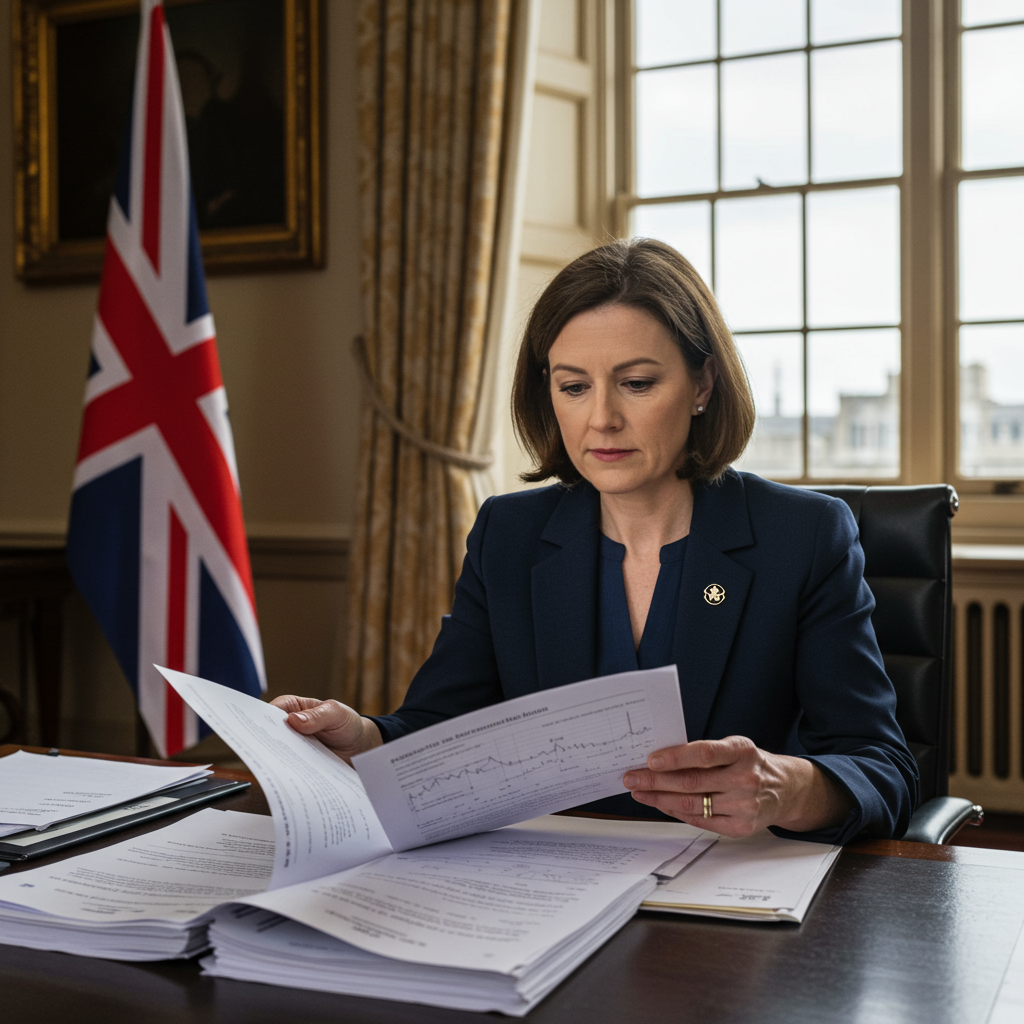The UK economy is showing signs of recovery, leading the International Monetary Fund (IMF) to slightly upgrade its growth forecast for the coming year. However, the influential global body has coupled this more optimistic outlook with a pointed warning, urging Chancellor Rachel Reeves to strictly adhere to the government’s fiscal rules on tax and spending.
In its latest annual assessment of the UK’s economic health, the IMF projected economic growth of 1.2% for 2025, a modest increase from its previous prediction of 1.1% made just over a month ago. The forecast anticipates growth rising further to 1.4% in 2026.
An Economy “Under Way” But Challenges Loom
The IMF stated that an economic recovery is “under way,” citing a particularly strong performance in the first three months of the year. This Q1 boost was driven by notable increases in consumer spending and business investment, according to recent official data. However, the report noted that these positive figures predated certain economic shifts, including the implementation of new US import tariffs and an increase in UK employer taxes in April.
Despite the improved near-term picture, the IMF highlighted significant long-term challenges. It warned that the Chancellor faces “difficult choices” in balancing taxation and expenditure due to:
A high level of global uncertainty
Volatile financial market conditions
The ongoing challenge of containing day-to-day government spending
The IMF stressed that sticking to self-imposed fiscal rules is crucial for maintaining credibility with financial markets.
Key Fiscal Rules and IMF Suggestions
The government operates under two main self-imposed fiscal rules designed to provide economic stability. These rules, which the government maintains are “non-negotiable,” stipulate that:
- Day-to-day government running costs should be covered by tax income, avoiding reliance on borrowing.
- National debt must be falling as a share of the national income by the end of the current parliamentary term (scheduled for 2029/30).
- https://www.bbc.com/news/articles/cx2jy0jk231o
- https://www.bbc.co.uk/news/articles/cx2jy0jk231o
- https://www.theguardian.com/business/article/2024/may/21/imf-tells-uk-cut-taxes-jeremy-hunt
While endorsing the principle of fiscal discipline, the IMF did suggest a potential change to how these rules are monitored. It recommended that the Office for Budget Responsibility (OBR), which assesses the UK’s finances, reduce the frequency of its reports from twice a year to just once.
Future Headwinds and Trade Prospects
Looking beyond the immediate recovery, the IMF report indicated that global trade tensions are expected to constrain UK growth in 2026. Factors anticipated to weigh on the economy include:
Reduced activity among the UK’s key trading partners
The impact of US President Donald Trump’s tariffs
Persistent uncertainty in the global economic landscape
The IMF estimated that the combined effect of these factors could reduce growth in 2026 by around 0.3%.
On a more positive note concerning trade, the IMF acknowledged the trade agreements the UK has recently secured with partners like the EU, India, and the US. The report viewed these deals as a demonstration of the government’s commitment to fostering a more predictable environment for UK exporters.
Inflation Outlook Update
The report’s release follows recent data showing an unexpected rise in UK inflation. The Office for National Statistics (ONS) reported that the Consumer Prices Index (CPI) rose to 3.5% in April, up from 2.6% in March.
The IMF had previously anticipated inflation slowing to 2.2% by 2026, close to the Bank of England’s 2% target. Their updated view is that the recent inflationary pressures will likely persist until the latter half of 2025, with inflation returning to the target “later in 2026.”
Political Divide on the Report
The IMF’s assessment drew contrasting responses from the UK’s leading politicians.
Chancellor Rachel Reeves welcomed the report, stating that the government’s trade deals were instrumental in “protecting jobs, boosting investment and cutting prices.”
However, Shadow Chancellor Mel Stride offered a sharp critique, accusing Reeves of having “already fiddled her fiscal targets to allow her to borrow hundreds of billions more over this parliament.” He warned that any further changes to the fiscal rule framework would “run real risks with market confidence.”



